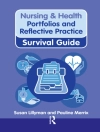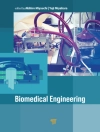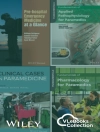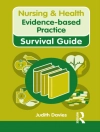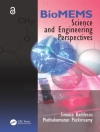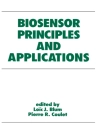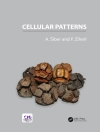Advanced Practice in Critical Care provides experienced
critical care nurses with a clear and distinct evidence base for
contemporary critical care practice. Central to the book is the
application of research and evidence to practice and therefore,
case studies and key critical care clinical situations are used
throughout to guide the reader through the patient care trajectory.
Each chapter introduces an initial patient scenario and as the
chapter progresses, the patient scenario develops with the
theoretical perspectives and application. In this way, it is
evident how multi-organ dysfunction develops, impacting upon and
influencing other body systems, demonstrating the multi-organ
impact that is often experienced by the critically ill patient. In
this way, consequences of critical illness such as acute renal
failure, haemostatic failure and liver dysfunction are explored.
Throughout the text, key research findings and critical care
treatment strategies are referred to, applied and evaluated in the
context of the given patient case study. Advanced assessment
techniques are explained and the underlying pathophysiology is
discussed in depth. Advanced Practice in Critical Care is an
essential resource for experienced practitioners within critical
care whom primarily care for patients requiring high dependency or
intensive care.
Cuprins
Contents.
Preface.
Introduction.
Chapter 1- Critical Care Challenges.
Contemporary critical care.
Critical care developments from an international perspective.
Developing the nurses’ role in critical care Chapter 2- The Physiological Basis of Critical Illness.
Mechanisms of Cellular Damage.
The Inflammatory Response.
Haemostasis.
Chapter 3- The Patient with Haemodynamic Compromise.
Initial patient scenario.
Underlying pathophysiology.
Assessment.
Evidence based care.
Development of the patient scenario.
Progressing pathophysiology.
Ongoing assessment.
Evidence based care.
Chapter 4- The Septic Patient.
Initial patient scenario.
Underlying pathophysiology.
Assessment.
Evidence based care.
Development of the patient scenario.
Progressing pathophysiology.
Ongoing assessment.
Evidence based care.
Chapter 5- The Patient with Severe Burns.
Patient scenario.
Underlying pathophysiology.
Assessment.
Evidence based care.
Chapter 6- The Patient with Acute Respiratory Failure.
Initial patient scenario.
Underlying pathophysiology.
Assessment.
Evidence based care.
Development of the patient scenario.
Progressing pathophysiology.
Ongoing assessment.
Evidence based care.
Chapter 7- The Patient who has Chronic Respiratory Failure.
Patient scenario.
Underlying pathophysiology.
Assessment.
Evidence based care.
Chapter 8- The Patient with an Intracranial Insult.
Initial patient scenario.
Underlying pathophysiology.
Assessment.
Evidence based care.
Development of the patient scenario.
Progressing pathophysiology.
Ongoing assessment.
Evidence based care.
Chapter 9- The Patient with a Traumatic Injury.
Patient scenario.
Underlying pathophysiology.
Assessment.
Evidence based care.
Development of the patient scenario.
Progressing pathophysiology.
Ongoing assessment.
Evidence based care.
Chapter 10- The Patient with a Diabetic Emergency.
Patient scenario.
Underlying pathophysiology.
Assessment.
Evidence based care.
.
Chapter 11- The Long term patient in ITU.
Patient scenario.
Psychosocial considerations.
Sensoristasis.
Follow up.
Chapter 12- Ethical considerations of critical care.
Patient scenario.
Ethical principles.
Admission to the critical care setting.
Withholding and withdrawal of treatment.
Nurses role in the decision making process.
.
Index
Despre autor
Sarah Mc Gloin is Senior Lecturer in Acute Care at Anglia
Ruskin University, UK.
Anne Mc Leod is Senior Lecturer Critical Care at City
University, UK.


